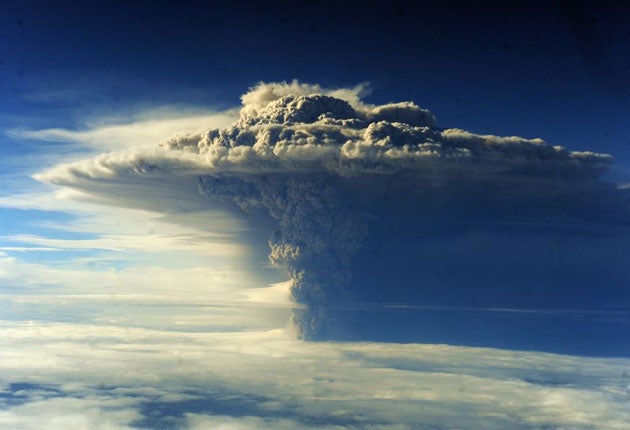Pic of the Day: Six miles high, the eruption that shook Chile and Argentina

Your support helps us to tell the story
From reproductive rights to climate change to Big Tech, The Independent is on the ground when the story is developing. Whether it's investigating the financials of Elon Musk's pro-Trump PAC or producing our latest documentary, 'The A Word', which shines a light on the American women fighting for reproductive rights, we know how important it is to parse out the facts from the messaging.
At such a critical moment in US history, we need reporters on the ground. Your donation allows us to keep sending journalists to speak to both sides of the story.
The Independent is trusted by Americans across the entire political spectrum. And unlike many other quality news outlets, we choose not to lock Americans out of our reporting and analysis with paywalls. We believe quality journalism should be available to everyone, paid for by those who can afford it.
Your support makes all the difference.The skies turned black across southern Chile and Argentina as one of the Puyehue-Cordon Caulle volcanoes belched out a heavy blanket of ash, the first eruption in half a century.
Nestled in the Andes mountains 540 miles south of the Chilean capital Santiago, the volcano erupted on Saturday, producing a six-mile tower of gas and causing 3,500 people to flee their homes.
Winds sent the ash as far as the Patagonian ski resort of San Carlos de Bariloche, 62 miles from the volcano, where a snowstorm of soot carpeted the town in grey. The city's airport was closed and local residents wore gas masks to protect them from the ash and stifle the strong stench of sulphur.
The thick cover of ash meant it was not immediately clear which of the Puyehye-Codron Caulle chain's four volcanoes had erupted. Witnesses reported seeing the volcano spitting molten rock, but no lava flow.
Authorities were on alert from early Saturday morning after a flurry of earthquakes, and the eruption began in the afternoon. The National Emergency Office said it recorded an average of 230 tremors an hour.
The eruption prompted officials to close the border crossing between Chile and Argentina, and warned residents to stay indoors.
Chile has some 2,000 volcanoes in the world's second largest volcanic chain after Indonesia. Some 50 to 60 have had recorded eruptions, and 500 are potentially active.
Chile's Llaima volcano is one of South America's most active, and erupted in 2008 and 2009.
Join our commenting forum
Join thought-provoking conversations, follow other Independent readers and see their replies
Comments